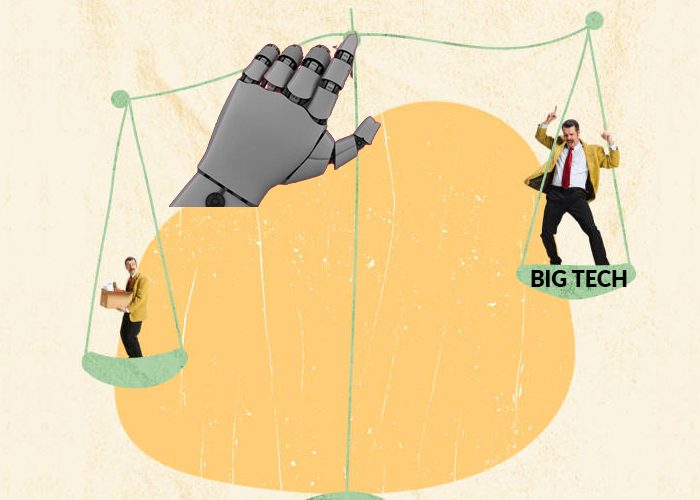
Rising tide of AI: Will it help or hinder the quest for tech industry dominance by big tech companies?
The rise of Artificial Intelligence (AI) has been a game-changer for the tech industry, with companies like Amazon, Google, and Facebook investing heavily in this technology. While AI has many potential benefits, some experts have raised concerns about the increasing power of big tech companies. The fear is that AI will only make these companies more dominant, leading to increased monopolies and decreased competition. This could potentially harm consumers by limiting their options and driving up prices. On the other hand, some believe that AI could level the playing field by enabling smaller companies to compete with the tech giants. In this article, we will examine the impact of AI on big tech and the potential consequences for consumers and the wider economy.
The Impact of AI on Big Tech Companies
AI is transforming the way Big Tech companies operate. These companies leverage AI technologies to automate processes, personalize user experiences, and enhance their products and services. For instance, Google uses AI to power its search engine and recommend content to users. Amazon uses AI to recommend products to customers and improve its supply chain management. Microsoft uses AI to develop intelligent virtual assistants, such as Cortana, and to improve its productivity tools, such as Office 365.
The increasing use of AI has enabled Big Tech companies to become more efficient, productive, and innovative. AI has also helped these companies to gain a competitive advantage over their rivals. However, the use of AI has also raised concerns about the concentration of power and influence in the hands of a few dominant players.
The Concentration of Power in Big Tech Companies
The rise of AI has enabled Big Tech companies to collect and analyze vast amounts of data, giving them unprecedented power over individuals, businesses, and governments. This power has raised concerns about the potential misuse of data by these companies and the risk of monopolistic behavior.
Big Tech companies have been accused of using their dominant market positions to stifle competition and maintain their power. For instance, Google has been fined billions of dollars by the European Union for anti-competitive practices related to its search engine and Android operating system. Amazon has been accused of using its market power to squeeze out smaller competitors and capture a larger share of the e-commerce market.
The use of AI has the potential to exacerbate these concerns by giving Big Tech companies even more power over data and technology. As AI becomes more advanced, these companies could use it to develop even more sophisticated tools for collecting and analyzing data, giving them an even greater advantage over their competitors.
The Need for Regulation
Given the potential risks associated with the concentration of power in Big Tech companies, there is a growing need for regulation to ensure that these companies use AI responsibly and ethically. Governments around the world are starting to recognize the need for regulation and are taking steps to address the issue.
For instance, the European Union has introduced several regulations aimed at curbing the power of Big Tech companies, including the General Data Protection Regulation (GDPR) and the Digital Services Act (DSA). The GDPR gives individuals greater control over their data and requires companies to obtain explicit consent before collecting and processing data. The DSA aims to regulate the online platform economy and ensure a level playing field for all players.
Similarly, in the United States, there is growing support for antitrust regulation aimed at curbing the power of Big Tech companies. In 2020, the Department of Justice filed a lawsuit against Google, alleging that the company had engaged in anti-competitive practices related to its search engine and advertising business.











